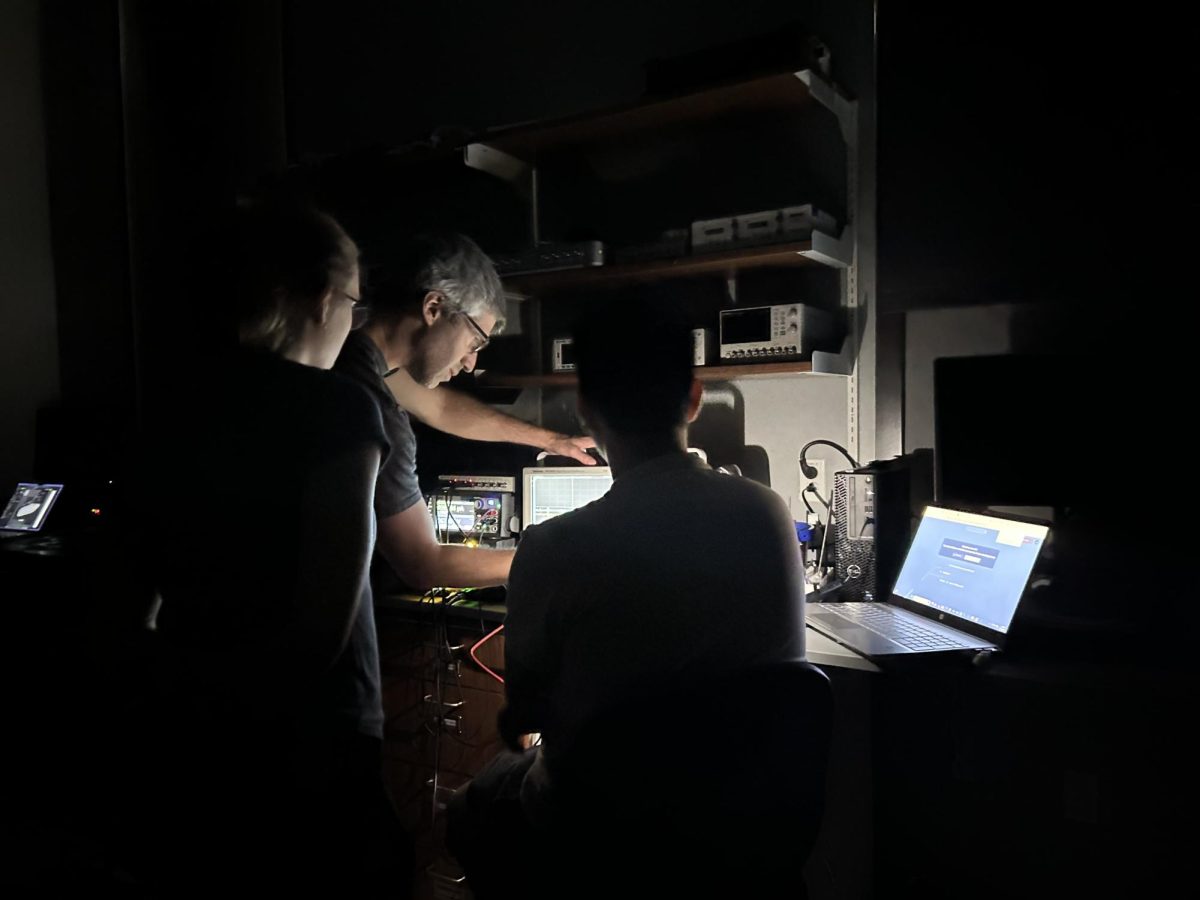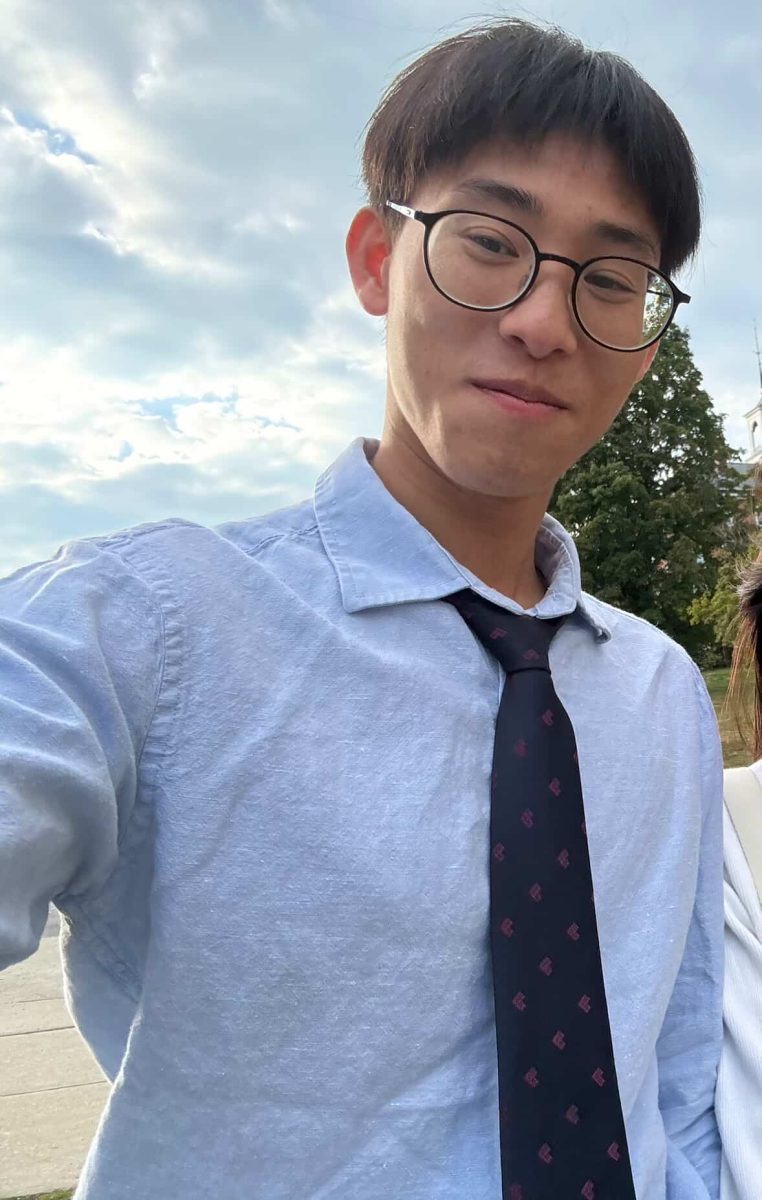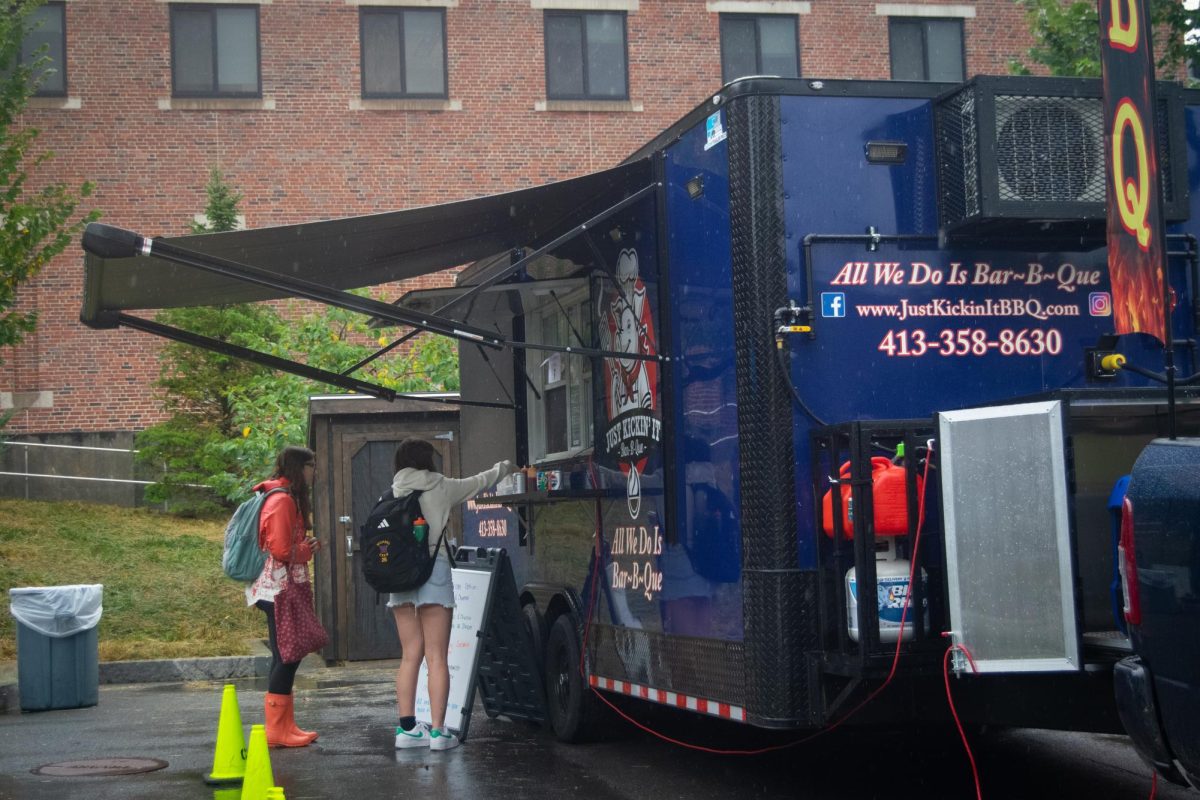
For Julie Fairchild, communications supervisor for Campus Safety and Security (CSS), these past few months have been the quietest she has seen in a while. “It used to be [that] the phone was ringing all the time or there’d be something going on, someone walking in or whatever,” she said. But ever since campus closure, Fairchild hasn’t seen much action.
CSS and administrative staff at the College typically refer to April as “the month with no name.” “Traditionally it’s been the worst month of the year with the greatest variety of high stress, high stakes calls,” Director of CSS David Boyer said at the end of April. “To go through this month without that is truly bizarre.”
“You might be interested to know that this is the longest I’ve gone without getting a complaint about a student crossing Route 2 inappropriately,” he added.
For the staff members still working on campus, moments like these stand out as markers of an unpredictable time, and of a campus almost completely closed due to the COVID-19 pandemic.
While students take classes remotely across the world, faculty record lectures from home and administration members meet virtually to plan for the future of the College, many staff members continue to show up in-person for work, often with altered or reduced schedules and on smaller teams. For the many staff members involved, shutting down and maintaining the College while supporting remote learning requires careful coordination across a variety of departments.
Dan Levering, assistant director for custodial services and special functions, oversees the first point of contact with students’ storage boxes and abandoned belongings. They have pulled out specific students’ belongings that needed to be sent and sorted between boxes to be shipped to students and those bound for storage in the Field House.
“Whatever didn’t get packed or labeled was put into donation or thrown [out],” Levering said. “There’s obviously a lot of waste that comes out of these things so that was the biggest part of our task once everyone left campus: to go through all the dorms and what we call ‘trash them out.’”
“We can all share stories of things we have found in the past: some bizarre, some weird, some completely inappropriate,” he added. “I shouldn’t get into specifics.”
Once the custodial and grounds crews gather items for shipment, they hand the boxes over to Kim Brown, manager of mail and print services, who sends them to students all over the world. She noted that coordinating all the mail and shipping prompted by the last-minute departure from campus not only relies on the work of College staff, but also on the U.S. Postal Service and UPS. “They go above and beyond, they call, they text me, they make sure I have all the supplies that I need,” she said. “They’re wonderful and we’re very lucky.”
Brown, who is accustomed to students coming to her office to look for course packets through the end of the semester, said her office feels quiet. “It’s pretty lonely,” she said. “I talk to myself [and] listen to the radio.”
Mail Operations Coordinator Debby Kopala, who manages all incoming mail to the College and set up no-contact delivery for its distribution, agreed. “I miss all the staff … the support, just in our office together,” she said. “It’s lonesome.”
The College’s heating plant workers shared a similar sentiment. Typically, two people work in the plant at once, which is staffed 24 hours a day, seven days a week. Now, with social distancing restrictions, only one person at a time works in the plant, and CSS calls every four hours to make sure the workers are safe and there are no issues. While many College buildings are closed and the heat usage has dropped, the plant is still heating over 70 buildings on campus.
Despite the behind the scenes nature of the plant, Heating Plant Manager Gary Bonafilia misses interacting with students, many of whom tour the plant in their classes. “I kinda like showing … what we do and how interactive we are with just about everything on campus,” Bonafilia said. “We don’t just supply heat and stuff like that.”
On the other hand, the Office of Information Technology (OIT) saw people constantly in the weeks following the campus shutdown. As the College transitioned to online learning, OIT staff held drop-in hours from 9 a.m. to 8 p.m., seven days a week, to answer faculty and staff questions, initially meeting in Sawyer before transitioning to Zoom. The office has helped faculty and staff set up everything from small seminars to large events. One event for admitted students had over 400 virtual attendees, multiple panels and a question-and-answer session.
Events, Classroom and Studio Support Specialist Patrick Gray rose to the challenge of switching from helping professors set up videoconferences to transitioning all classes online. “Everybody from the technical side jumped in figuring out what we needed to do,” he said. “I went Zoom crazy trying to learn everything I could about webinars and online hosting.”
For Gray, who also helps run the College’s recording studio, one silver lining has been watching students he has worked with over the years figure out how to finish their projects on their own. “I like to teach recording as I’m doing it,” he said. “I could just do the session and be done with it, but instead I found that teaching actually enabled [students] to take those projects and work on them themselves. That was a nice feeling.”
With smaller grounds and custodial crews working in rotating shifts while others stay home, Levering also mentioned a positive: getting to see his house in the daylight. “I live an hour away from campus, and always in the winter months I leave in the dark and I get home in the dark,” he said. “I’ve gotten to see my house and property all spring. I got to see the flowers come up.”
And for Tim Roberts, horticulture and grounds manager, the empty campus has actually made his staff’s job easier in some ways. “Usually mid-May we’re gearing up for commencement and starting to put things up at that time, and without commencement and reunion this year we’re able to do other things on campus,” he said.
For many who have worked at the College for years, commencement’s cancellation shows just how much the pandemic has disrupted the cyclical College year. “It is something we all look forward to,” Levering said. “It brings everyone together; it’s kinda like the Superbowl for us.”
“You ask people how long they’ve been here, a lot of people will say, ‘Oh, I’ve been here for X amount of commencements,’” he continued. “Everything happens at the same time every year… And then it doesn’t.”








